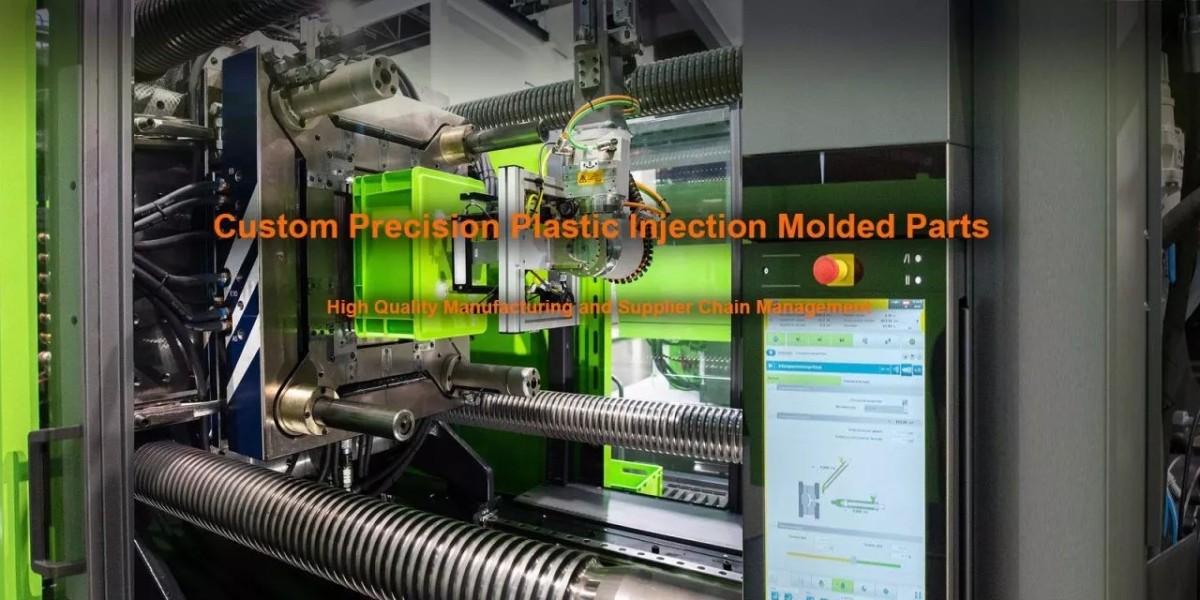What is Custom Plastic Injection Molding?
Custom plastic injection molding is the process of creating plastic parts by injecting molten plastic into a mold. The mold is typically made from steel or aluminum and is created to the exact specifications of the part that is being produced. The molten plastic is injected into the mold under high pressure, where it cools and solidifies into the desired shape. Once the plastic has cooled, the mold is opened and the part is ejected.
Advantages of Custom Plastic Injection Molding
There are several advantages to using custom plastic injection molding for manufacturing plastic parts. Some of these advantages include:
High production speed - Injection molding allows for high production speeds, making it an efficient and cost-effective way to produce large quantities of plastic parts.
Consistency - The process of injection molding allows for consistent and precise parts to be produced. This ensures that each part meets the required specifications.
Versatility - Injection molding can be used to produce parts of various sizes and shapes, from small components to large body panels.
Reduced waste - Injection molding produces minimal waste, as excess plastic can be melted down and reused.
The Injection Molding Process
The custom plastic injection molding involves several steps, including:
Mold creation - The mold is created to the exact specifications of the part that is being produced. This typically involves the use of computer-aided design (CAD) software and CNC machines.
Plastic preparation - The plastic pellets are melted down and mixed with any necessary additives or colorants.
Injection - The molten plastic is injected into the mold under high pressure.
Cooling - The plastic cools and solidifies in the mold.
Ejection - The mold is opened and the part is ejected.
Materials Used in Injection Molding
There are several different types of plastics that can be used in injection molding, including:
Polyethylene (PE) - A versatile plastic that is used in a wide range of applications.
Polypropylene (PP) - A lightweight plastic that is commonly used in packaging and textiles.
Acrylonitrile butadiene styrene (ABS) - A tough and durable plastic that is commonly used in the automotive and electronics industries.
Polycarbonate (PC) - A strong and transparent plastic that is commonly used in the manufacturing of eyeglasses and electronic components.
Design Considerations
There are several design considerations that must be taken into account when creating a mold for injection molding, including:
Wall thickness - The thickness of the walls of the part must be consistent throughout to ensure proper cooling and reduce the risk of warping.
Draft angle - A draft angle must be included in the design to allow for easy ejection of the part from the mold.
Gate location - The location of the gate, where the plastic enters the mold, can affect the strength and appearance of the part.
Undercuts - Undercuts, or areas where the mold cannot be opened straight, must be avoided or designed around to allow for easy ejection of the part.
Conclusion
custom plastic injection molding is a versatile manufacturing process that offers numerous benefits, including high precision, repeatability, and the ability to produce complex shapes and designs. It is a popular choice for the production of a wide range of plastic parts and products, from medical devices to automotive components, consumer goods, and more.
However, custom plastic injection molding also requires careful planning and design to ensure optimal results. Factors such as material selection, mold design, and production parameters must be carefully considered to achieve the desired outcome.
Overall, custom plastic injection molding is a valuable manufacturing process that can provide businesses with high-quality, cost-effective plastic parts and products. With the right approach and expertise, it can be a powerful tool for innovation and growth in a wide range of industries.








